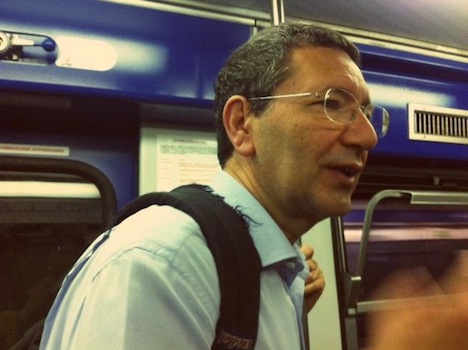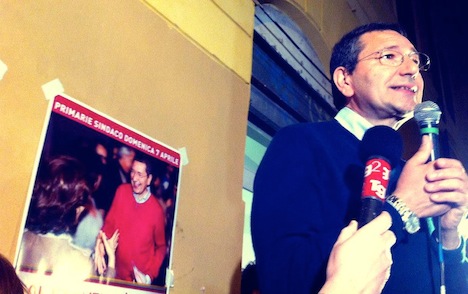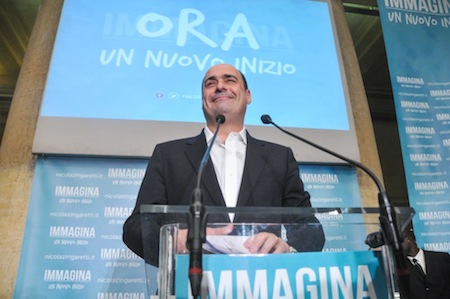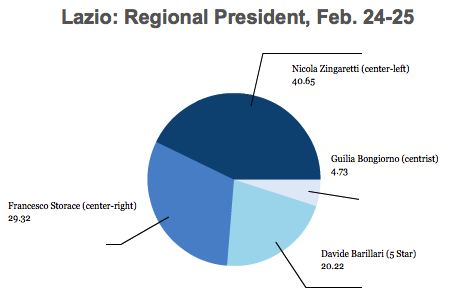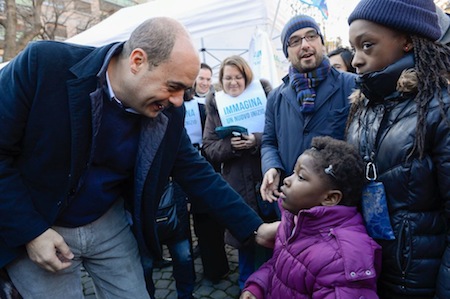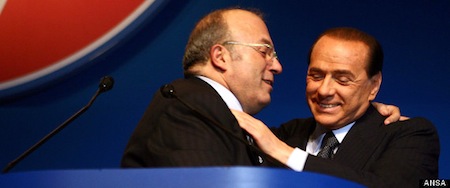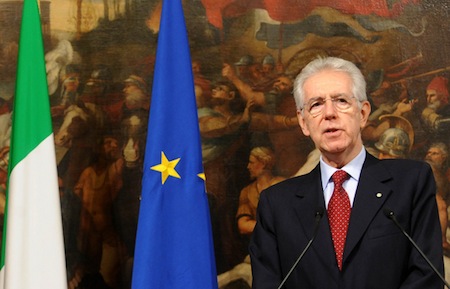The center-left candidate in Rome’s mayoral election runoff, Ignazio Marino, has overwhelmingly defeated the incumbent, Gianni Alemanno, by a margin of about 64% to 36%.![]()
That’s not surprising, given that Marino (pictured above) won the first round by a wide margin and fell just 7.5% short of the absolute majority threshold necessary to secure outright victory.
Marino’s landslide win is welcome news for prime minister Enrico Letta, as is the fact that the Partito Democratico (PD, Democratic Party) won in all of the major municipalities holding elections over the weekend. Letta, who leads a tenuous coalition with Silvio Berlusconi’s center-right Popolo della Libertà (PdL, People of Freedom), will certainly be delighted to see the local elections concluded, which augured tense competition between the PD and the PdL, despite their governing alliance in Italy’s parliament.
While Marino’s win is the top prize for the center-left, it is not necessarily an indication that the Italian left is out of trouble after its spectacular collapse. That collapse started when it only narrowly won February’s parliamentary elections, despite expectations of a much wider victory, and it accelerated with the inability of former PD leader Pier Luigi Bersani to form a government or push through his top choices for the Italian presidency. The reelection of Giorgio Napolitano as Italy’s president and Bersani’s subsequent resignation as PD leader cleared the path for the current Letta government.
But the PdL and its center-right allies have now held a consistent national polling lead over the PD and its center-right allies, especially as Italian voters become increasingly disenchanted with Beppe Grillo’s Movimento 5 Stelle (M5S, the Five Star Movement), which has found that it was better as a protest vehicle than as a responsible participant in government, where it has refused to play any role in governing with either the left or the right. The PD itself remains divided ahead of a leadership battle that will likely take place in October, so despite the fact that Florence mayor Matteo Renzi remains the most popular choice to be Italy’s prime minister (more so than Berlusconi, Letta or Bersani), Renzi is not necessarily assured of assuming the PD leadership later this year.
Though the PdL’s losses in local elections make it less likely that Berlusconi will trigger another round of elections, Italian politics will remain incredibly murky and fluid for the foreseeable future.
Alemanno, a stridently right-wing candidate with ties to the neofascist Italian right, came to power on a law-and-order platform, though he was never an incredibly good fit for politically moderate Rome, and his loss owes in some degree to local corruption scandals that have happened on his watch and to the perception of his government’s mismanagement of responding to last year’s snowstorm, Rome’s public transportation and other municipal woes. In addition, Lazio province has been fertile ground for the center-left recently — the province elected the PD’s Nicola Zingaretti as its regional president in February by a double-digit margin against former regional president Francesco Storace, even while Bersani’s center-left coalition only barely won the national vote.
Marino came to politics only in 2006 with his election to Italy’s Senato (Senate) following a career as an organ transplant surgeon, though his election as Rome’s mayor should launch him into the top echelon of the PD’s future leaders. Two former center-left Roman mayors, Francesco Rutelli and Walter Veltroni, have both led the center-left into national elections over the past decade.
The defeat should end Alemanno’s potential national aspirations, however. Although he had been mentioned as a potential successor to Berlusconi as the PdL’s leader in the future, that role seems increasingly likely to go to Angelino Alfano, who as deputy prime minister and interior minister is the highest-ranking PdL official in Letta’s grand coalition.
